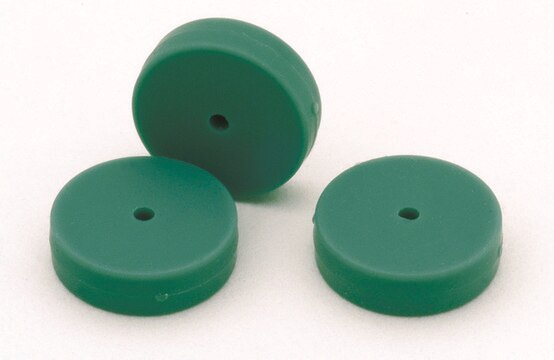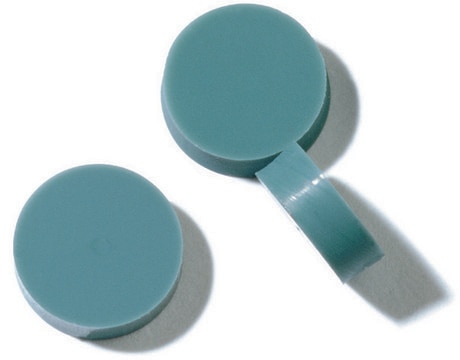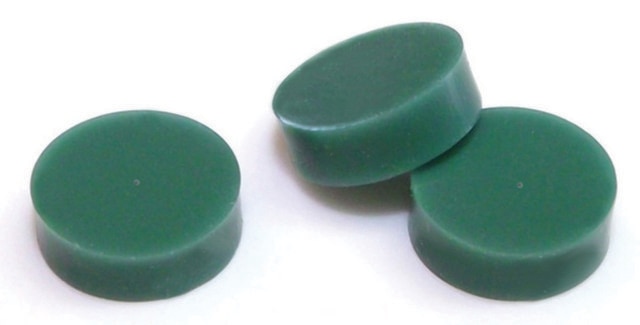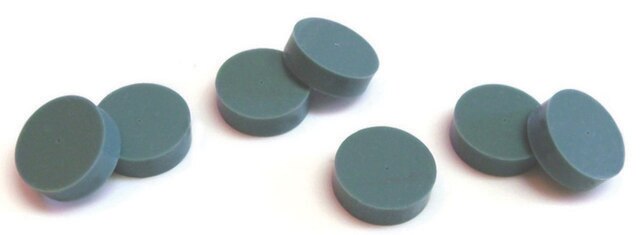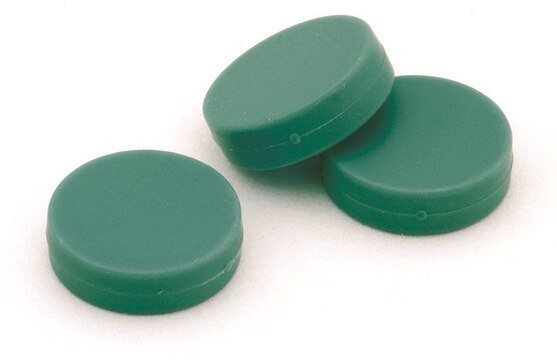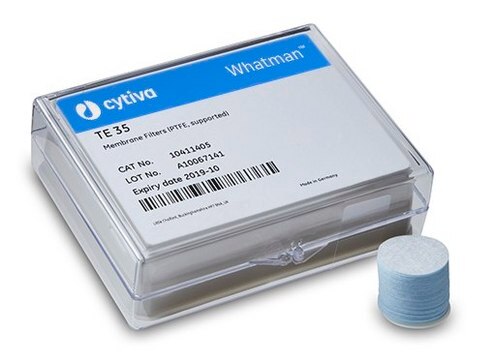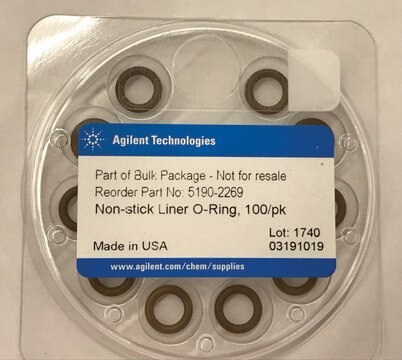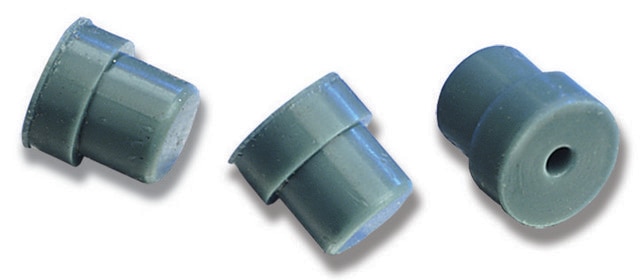28676-U
Molded Thermogreen® LB-2 Septa, solid discs
diam. 11 mm, pkg of 50 ea
Synonym(s):
TM=["Thermogreen"] LB-2 Septa (11 mm)
About This Item
Recommended Products
packaging
pkg of 50 ea
diam.
11 mm
Looking for similar products? Visit Product Comparison Guide
Related Categories
General description
Molded Thermogreen LB-2 septa are manufactured from high quality, low bleed material using the same exclusive LB-2 rubber formulation that chromatographers are accustomed to using. The difference is that molded septa, unlike traditional die-cut septa, offer easier installation and better sealing inside the injection port. This is because our liquid injection molding process ensures that every septum conforms to the same shape with crisp, clean sides. This is an improvement over a die-cutting process where septa can become cupped and/or distorted when the cutting surface becomes dull.
The useable inlet temperature range of 100-350 °C is adequate for most GC applications. Don′t be fooled by other septa that advertise a maximum temperature of 400 °C! Tto make septa with high thermal limits, they must be made stiffer, resulting in septa that are harder to pierce and easier to core! Our molded Thermogreen LB-2 septa offer the perfect combination of low bleed, thermal stability, and easy puncturability.
- Rubber formulation exclusive to Supelco
- Strict tolerances (diameter, thickness, injection hole) due to constant dimension of the mold itself
- Ultra low bleed over a wide range of inlet temperatures (100 °C to 350 °C)
- No foreign substances/powders (which could contaminate the inlet) are used during manufacturing
- Fully tested for bleed and contamination
- Already conditioned, ready to use
- Ideal for use with low bleed GC-MS columns
Other Notes
Legal Information
wgk_germany
WGK 3
flash_point_f
Not applicable
flash_point_c
Not applicable
Choose from one of the most recent versions:
Certificates of Analysis (COA)
Sorry, we don't have COAs for this product available online at this time.
If you need assistance, please contact Customer Support.
Already Own This Product?
Find documentation for the products that you have recently purchased in the Document Library.
Customers Also Viewed
Articles
Pistachios contain approximately 45% fat, which can result in a significant amount of coextracted matrix in the acetonitrile extract generated using the QuEChERS procedure. A zirconia based adsorbent significantly reduces coextracted matrix prior to LC-MS or GC-MS.
A procedure for cleanup of green tea extracts provides low background and allowed for the analysis of more pesticides at lower levels than QuEChERS. Uses less solvents and no toluene.
The odor and pungency of ginger is due to the presence of terpenes, gingerols and shogaols. These compounds contribute to the highly complex matrix of ginger, which subsequently presents a challenge in low level analyses of contaminants. A novel 2-layer SPE cartridge efficiently reduces background for pesticide determination.
To show product safety, it is mandatory to test cannabis flowers for the presence of pesticides. In this article, we show a complete workflow for sample preparation and analysis of cannabis for the pesticides registered in California, by LC-MS/MS and GC-MS/MS
Protocols
Paprika is a spice made from dried sweet peppers, and is used for flavor and color in many types of cuisine. Contamination with polynuclear aromatic hydrocarbons (PAHs) can occur when pepper plants are exposed to these pollutants in the environment and/or during the drying process.
Complete workflow for the comprehensive analysis of terpenes in cannabis
Our team of scientists has experience in all areas of research including Life Science, Material Science, Chemical Synthesis, Chromatography, Analytical and many others.
Contact Technical Service